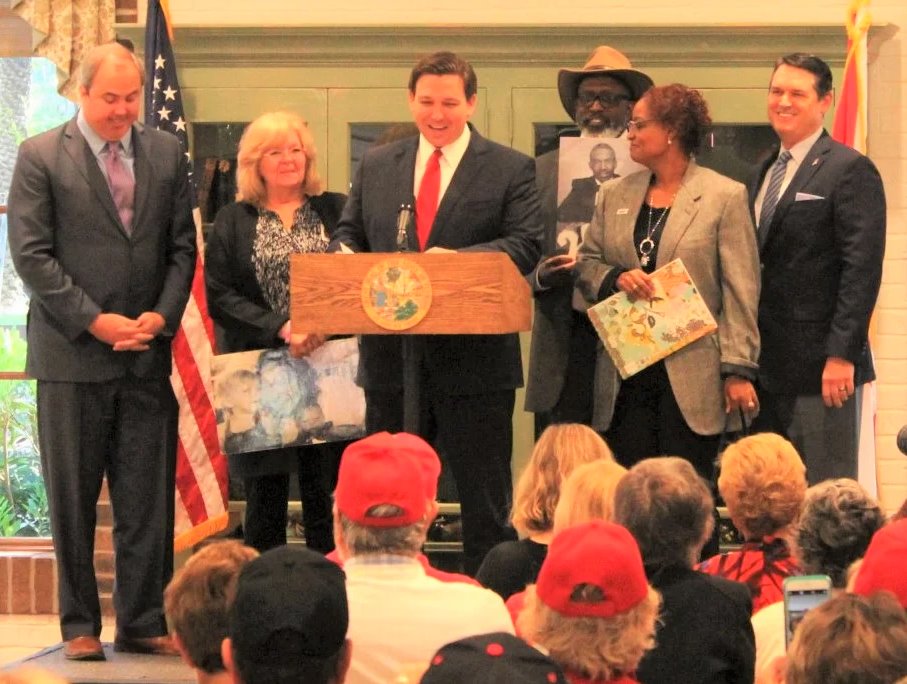Florida is starting off the new year with a law in place aimed at battling the hiring of illegal immigrants – a measure that was once touted by Gov. Ron DeSantis during a visit to The Villages.

The new law makes it mandatory for government employers – school districts, public universities and colleges, state and local agencies and their private contractors – to use the E-Verify system to confirm that the documentation provided by prospective employees is valid. E-Verify is a federal electronic database that compares information entered by an employer about a new hire with records available to the Department of Homeland Security and the Social Security Administration to confirm employment eligibility.
Florida passed the E-Verify statute on June 30. Promising its passage was a mainstay of DeSantis campaign when he was running for governor in 2018, including during several stops in The Villages and the Central Florida area. The new law was opposed by some immigrant advocacy groups and business organizations, many of which operate in construction, hospitality and agriculture – all of which are prevalent throughout The Villages and surrounding areas.
Private employers aren’t required to use E-Verify unless they have a contract with a public entity or they apply for taxpayer-funded incentives through the state Department of Economic Opportunity.
DeSantis chose The Villages – a community that often struggles to find lower-wage workers for a variety of jobs – in November 2019 as the setting to make his case for the E-Verify law. He vowed to tackle “cheap illegal labor” during a press conference at the Fenney Recreation Center.
“The number one reason that you have illegal immigration is because of employment,” he said, while flanked by state Sen. Joe Gruters, state Rep. Cord Byrd and “Angel Parents” Vickie Lyon and Kiyan and Bobby Michael, who lost adult children in vehicle crashes with illegal immigrants. “A lot of times there will be businesses that will hire cheap, foreign illegal labor that undercuts American wages.”
During his speech, DeSantis pointed out that a long-standing federal law requires workers to be in the United States legally if they hope to secure employment here.
“I believe the vast majority of people in our state believe that businesses should be hiring Americans and legal immigrants,” he said.
The governor also pointed out that Florida was at the time the only state in the southeastern portion of the country that wasn’t already requiring the use of E-Verify system. He promised use of the system would quickly deter illegal immigrants from wanting to come to the Sunshine State and actually lead to pay increases for lower-wage blue-collar workers.

DeSantis also tied the importance of enacting the verification system to illegal activities in the state. He cited the Department of Homeland Security busting an organized crime ring in Jacksonville in 2019 that was helping the flow of illegal labor into the state and using shell companies to create a fraudulent workers’ compensation scheme.
“When you have those types of criminal enterprises, you end up seeing money-laundering, fraud, identity theft – all of that goes to what we’re talking about here,” he said.
DeSantis also cited 2018 Homeland Security crime stats in Florida – more 900 criminal arrests; more than 1,400 investigative cases; and 127,000 pounds of narcotics, 365 firearms and more than $14 million in currency seizures.
“At the end of the day, the law is the law,” he said. “You either comply with it or you don’t. And I think in Florida we should be complying with it and have a legal workforce. That’s just the bottom line.”

